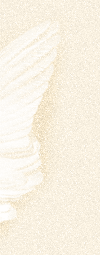Èííà Áðîóäå. Òàêîå âîò êèíî... Ðóññêèå ôèëüìû 1990-õ. Tenafly, NJ: 2001. 128 pp. $14.00 (paper).
Broude's recent book is a collection of film reviews, some of which have been previously published in the leading Russian film monthly, Iskusstvo Kino (The Art of Movie). The twelve critical essays included in the collection roughly cover the last decade of the twentieth century, presenting Broude's commentary on Pichul's Little Vera (1988), Khotienko's The Muslim (1995), Mikhalkov's Burnt by the Sun (1994), Chukhrai's The Thief (1997), German's Khrustalev, My Car! (1998), Balabanov's The Brother (1997) and Of Freaks and Men (1999), Men'shov's Shirli-Myrli (1995), Dostal's Cloud-Heaven (1991), Muratova's Three Stories (1998), Sokurov's Mother and Son (1998), and Bobrova's In that Land (1997). These Post-Soviet films are representative of different genres and aesthetic orientations, dwell on different issues and are of quite uneven quality. Some of them are acclaimed international successes (Burned by the Sun; The Thief; Khrustalev, My Car!; Mother and Son; In that Land) while others are admittedly mediocre (Shirli-Myrli).
The collection does not offer a comprehensive overview of Russian cinematography of the nineties. After all, a number of important Russian films of the last decade were left outside its scope. Nor does it intend to address this period's highlights-some of the included pieces can hardly be listed among cinematographic achievements (Shirli-Myrli, Burned by the Sun). Furthermore, almost all of the directors represented in the collection have more than one "nineties" movie. For example, several of Sokurov's masterpieces were released in the nineties. And while his Mother and Son (1998) is a tour de force in its own right, it is by no means self-evident why it should be chosen over such other masterpieces as Moloch (1998) or Taurus (2000). Unfortunately, Broude's interest in these particular films is not revealed to the reader, leaving her/him with the impression of randomness in the critic's selection. This failing could have been easily obviated by the inclusion of a succinct introduction addressing the author's intent in publishing this selection.
None of the reviewed films are contextualized either within other works of the same genre, or within the oeuvre of the given director-they all are treated as separate entities. On the other hand, an exhaustive analysis of these works is not on Broude's agenda. The critic does not aspire to offer a scholarly analysis of the Post-Soviet Russian cinema but rather opts to share her insights about several noteworthy films of the last decade. Her essays provide commentaries on the idiosyncratic and innovative aspects of some of these films (Little Vera, In that Land, Mother and Son), bring to the fore the most momentous episodes of others (The Thief), discuss themes and plots (Burned by the Sun), merits (Khrustalev, My Car!) and shortcomings (The Muslim, Three Stories). Among Broude's most stimulating discussions are those of the damaging heritage of Stalinism endorsed in Chukhrai's The Thief and this epoch's monstrosity and absurdity reflected by German. Other interesting discussions address the emergence of the new Russian type, a professional killer (The Brother), spiritual bankruptcy and demonic in the portrayal of the Russian people (The Muslim), meditation on death (Mother and Son), collective and individual as reflected in Bobrova's In that Land. Yet these discussions are never exhaustive and more extensive commentary would have been desired on all of these films.
Aimed at a popular audience, this scanty volume is not a reference resource on Post-Soviet Russian cinema, yet it can be of interest to students of Russian Culture and Film.



